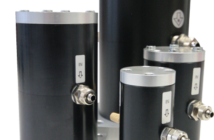US consumers who choose to avoid orange juice because of the Food and Drug Administration (FDA) Carbendazim fungicide residue scare might actually consume more of it by switching to other juices, such as apple or grape juice, according to former FDA Regulatory counsel, Benjamin England.
“By testing and holding all orange juice shipments FDA is creating a fear that is unreasonable, not based upon science, ignoring meaningful risks to safety, and as a result is driving ordinarily rational parents to make choices that actually increase the chance their kids will be exposed to MBC,” Mr England says.
Carbendazim is actually methyl 2-benzimidazoyl carbamate – MBC. According to England, although EPA banned direct food-use of MBC, it is still legal for MBC residues to be found on many foods – including foods that are used to make fruit juices such as apples, apricots, cherries, grapes and peaches.
This tolerance for MBC still exists through another pesticide, called thiophanate methyl (or TPM). TPM is also a fungicide, but it is approved by EPA for direct use on these and other fruits – but not oranges. TPM degrades over time to other chemicals, one of which is MBC. In fact, when FDA is testing food to determine whether TPM was used, FDA tests for MBC – because anywhere from some or all of the TPM will no longer be on the food by the time it gets to the border or to FDA’s lab. FDA cannot detect TPM that has degraded, but it can test for MBC and calculate back up how much TPM residue was on the food.
Mr England says the FDA gets media coverage which makes the agency look like it is protecting the consumer. In fact the exact opposite is occurring. Mr England has no opinion on whether or not it is good to have MBC residues on food but “at least FDA and EPA have already determined it is safe – it won’t hurt you.”




























































































